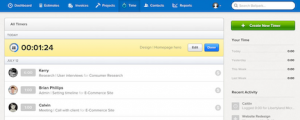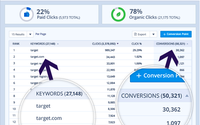How To Leverage Artificial Intelligence
by Asim Mughal , Op-Ed Contributor, July 31, 2017
Artificial Intelligence (AI) is one of the technology advancements that businesses have to deal with when it comes to digital marketing. With AI, computers can perform various human activities like speech recognition, learning, reasoning, problem solving and planning, as well as moving objects. It is through AI that voice-based virtual assistants like Apple’s Siri, Microsoft’s Cortana, Google Assistant and Amazon’s Alexa exist. It is also through AI that we have text-based assistants like Facebook M.
AI wrapped up in smartphones makes it easy for people to search for information without the challenges of reading through reviews or scrolling through search engine results. You can ask the assistants about the day’s weather, where the best burger joint is near you, or whatever else you want. This is just the beginning.
Where Artificial Intelligence Meets Digital Marketing
In digital marketing, certain factors are vital for the delivery of results. For instance, marketers use search engine optimization (SEO), content marketing, social media marketing, email marketing, pay-per-click (PPC) and online PR in their digital marketing processes. AI helps make all these processes easier.
In a few years, marketers can expect AI to play a major role in every stage of their online marketing process. In fact, according to a study by Forrester Research, AI makes up one of the five emerging technologies that are expected to begin changing the world by 2022.
Leverage AI To Ramp Up Your Digital Marketing
1. Acquire and attract a more targeted audience
Artificial intelligence excels at studying and predicting human behavior. When a person goes online, there is usually a pattern of sites visited. Through these patterns and based on the data the individual provides, an AI-powered program is able to understand the demographics, online behavior and the preferences of a user — thus offering more personalized business insights for effective digital marketing processes.
AI helps to understand each target audience — a trait that is useful in the creation and development of targeted ads, content and personalized software aimed at improving customer experience and attracting new customers.
2. Effectively recommend products and services
Have you ever visited a site that recommends products you wouldn’t even consider using, let alone purchase? It can be frustrating and annoying.
Then comes Amazon, where products recommended match exactly what you are looking for. The ecommerce giant knows how to keep you on the site making purchases you never even planned for. And how do they achieve this? Through AI.
By using algorithms that understand user behavior in a more personalized form, businesses can offer more effective recommendations.
3. Incorporate chatbots in your digital marketing process
From fun-based messaging platforms like Facebook Messenger, WhatsApp and Telegram to more functional platforms, chatbots — computer programs that are powered by AI to interact with people through text messaging — are the present and the future.
With a chatbot, a user can query a business over their products or services to help make a purchase, and instantly get a response. In this way, chatbots help improve customer experience and attract a wide customer base.
By incorporating AI-powered chatbots in your digital marketing strategies, you can guarantee brand awareness and growth in users.
4. Automate the boring marketing tasks
Collecting and analyzing consumer data for the purpose of coming up with a strategy is a strenuous process. The continued rise of AI can help ease this process and reduce the time it takes a human to analyze data.
This can be achieved through gathering insights from analysis on ad performance, social media campaigns, email marketing, and user demographics to automate various marketing functions. By automating these processes, digital marketers can focus on the creativity and implementation stages, making it easy to achieve desired results.
5. Personalize your business website and apps
Customers appreciate when a business understands their personal needs, so a personalized recommendation for similar articles, products or services is important and helps convert customers easily. The same concept is applicable when it comes to general website and application uses.
For instance, when a new user visits your website, they will probably be interested in informational material. A sales page about a product they don’t even understand may not be very appealing and may force them to leave prematurely. On the other hand, a returning visitor will want to see what product or service is new or to read the latest post.
By leveraging AI, you can ensure that content on your website is personalized to every individual user.
In conclusion
AI is here to stay. In the next few years, use of visuals in digital marketing will no longer be as effective as it is today. We are not living in a machine-led world, and machines are not likely to take over the world in the near future.
But AI will gradually take greater control when it comes to functions such as personal assistants, learning and digital processes. So in order to remain relevant, a business must begin to incorporate AI as an extension to its digital marketing processes.
MediaPost.com: Search Marketing Daily
(80)






